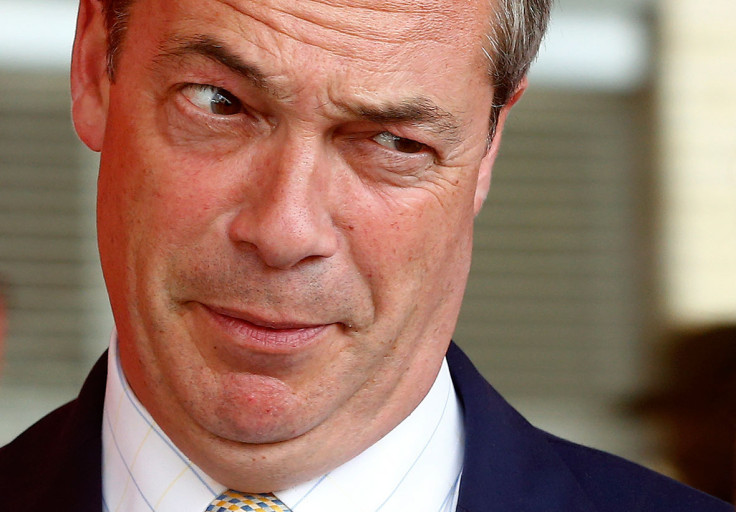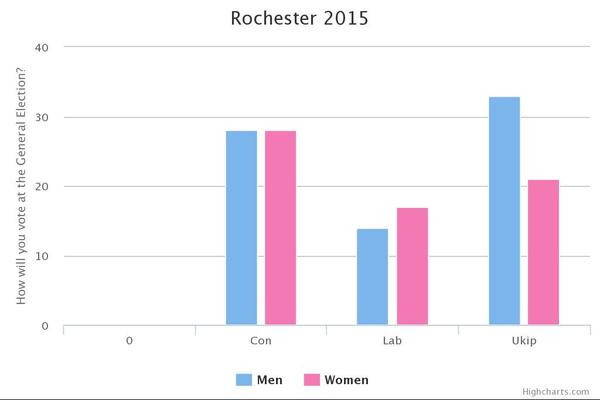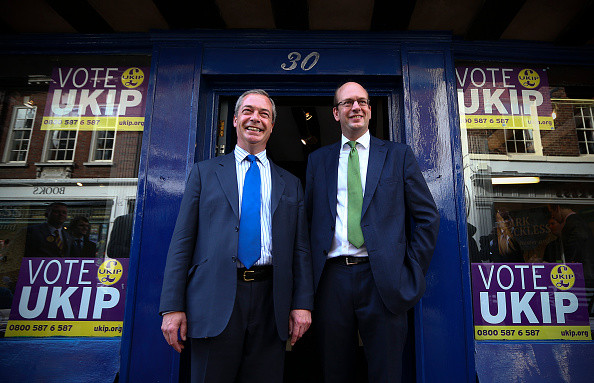The Nigel Farage Interview: Women Just Don't Get Ukip

Nigel Farage said that women's natural aversion to risk makes them less likely than men to support Ukip, during an exclusive interview with IBTimes UK.
Recent studies have suggested that, while Farage has proved adept at picking up the male vote, he has yet to attract a significant core of female supporters.
"There's actually some evidence that's quite strong that men are more prone to rolling the dice, and taking risks earlier than women, who are actually naturally more conservative, perhaps even sensible, than men." Farage told IBTimes UK.
"Women take a little bit longer to look at a new product and decide whether it's worth buying or not. Men tend to jump in a little bit more quickly. The opinion polling proves it... that women look at a new product and they are naturally a bit more sceptical than men.
"That's what the polling shows. I've done focus group works on this, the results actually prove that."

However he bullishly refuted any suggestion of a 'women problem', arguing that the party's perceived difficulty in attracting female supporters "certainly isn't happening in Rochester [where Ukip is expected to win a by-election next week]."
'I'm not looking for coalition with anybody'
Speaking to IBTimes UK at a pub in central London, the long-standing MEP denied he was contemplating a coalition with any of the major parties after the 2015 General Election, and hinted at more Tory MPs defecting to the Ukip ranks after the expected Rochester victory.
Farage described his mood as "confident, but not complacent" going into the Rochester poll, adding that the party wanted to prove that "we're winners. In our key seats, you vote Ukip, you get Ukip. Not this rubbish about whose vote we're going to split. The implications of that for the General Election next year are very significant."

Farage suggested he "would be surprised" if there weren't more defections to follow Douglas Carswell and Mark Reckless, the former Tory MP who triggered next week's by-election by switching to Ukip. However he refused to reveal whether his party is talking to any prospective defectors at present.
Regarding the prospect of Ukip forming a government with one of the established parties next May, Farage added: "I don't suppose to go into coalition with anybody.
"The Bentley looks very tempting, if that's the ministerial car they're offering, but I'm not sure that's what I'm in politics for. There are other ways to support the biggest party than going into a pure coalition.
"We're fighting 7 May next year to do as well as we possibly can and thereafter we'll examine the possibilities. But I don't regard being in coalition as my ambition on 7 May next year."
Asked whether he would implement draconian measures to drag down the number of immigrants in the UK, Farage said: "We'd end the open door, define that as you wish to. If you think that us becoming like 190 other countries in the world is draconian, you can put it in those terms. I think it's a common sense approach.
"In the 50s, 60s, 70s, 80s and 90s, [the number of migrants] was about net 30,000 a year. That's how we used to operate, we knew exactly where we were, it was very straightforward, and a number of that region is sensible. The fact that it's now eight times that, and going up rapidly, strikes me as not being very responsible or sensible."

'We're challenging the orthodoxy'
Earlier this week Farage claimed he had been "snubbed" by the Government on Remembrance Sunday, when Ukip was not invited to lay a wreath at the Cenotaph in Whitehall.
He repeated the claim to IBTimes UK, saying the Government's refusal to extend an invitation was "an extraordinary snub" to his party, and describing the current political establishment as "a closed shop".
"Why did the school governor who supported Ukip have to resign in Whitby? Why did the foster parents who supported Ukip have their kids taken away? It's all about the same gang, it's all about trying to pretend Ukip doesn't exist. But as Gandhi said: 'first they ignore you, then they laugh at you, then they attack you, then you win.'
"It's because we're challenging the orthodoxy. Just as there was an orthodoxy that Hitler was a very nice man. When you get orthodoxies, and as I know from my days in the markets, when the bullish consensus goes over 80% the market's going down. And it's a bit like that in politics.
"We've got a consensus, a closed shop; nobody else is to be allowed in, but that isn't sustainable."
© Copyright IBTimes 2024. All rights reserved.






















